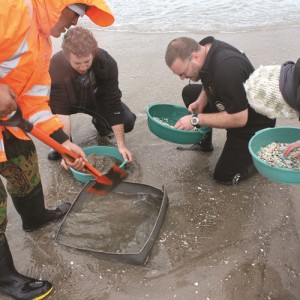Bay of Plenty Regional Council is responsible for effective management of the coastline
from Lottin Point in the east to Waihi Beach in the west, as well as the iconic Rotorua
lakes in the central North Island. Both areas are of considerable economic and cultural
significance, and both are under threat from changing land uses, increased pressure from a
growing population, recreation and tourism.
The Regional Council needs robust science and a deep understanding of both coastal and
lake processes so it can manage these precious resources effectively. Establishing the
University of Waikato Chairs in Lake Management and Restoration and Coastal Science
ensures ground-breaking research into the processes which shape these vital areas, and
informs the projects established to protect and restore them.
Working in partnership with Rotorua District Council and Te Arawa Lakes Trust, the Rotorua
Te Arawa Lakes Programme is responsible for improving and protecting the district’s
lakes, and is leading the way to improve and protect the region’s lakes with innovative,
experimental projects. The programme is supported by proven science, and involves both
short and long-term actions, in-lake and land-based work.
The value of having robust coastal science and monitoring data immediately available
was proven when the MV Rena grounded in October 2011. Even before oil began coming
ashore, baseline environmental information about the state of the Tauranga Harbour was
already recorded, giving a clear picture of a “pre-Rena” state.


